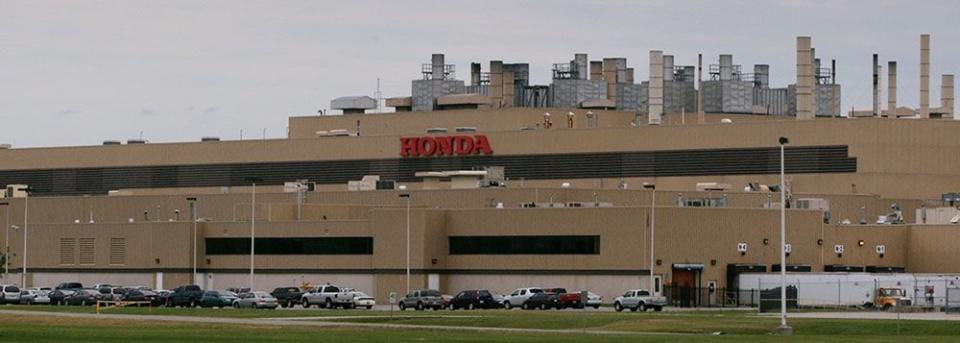Honda set to announce mega EV and battery complex in Ontario today

Honda Motor Co. Ltd. is set to announce that it will build a new electric-vehicle and battery manufacturing operation in Canada on Thursday morning in Alliston, Ont., according to a source familiar with the matter.
Two other sources said they expect the Japanese automaker to make an announcement this week, and added that it will be the largest EV and battery complex in Canada ever announced.
Honda has confirmed it is holding discussions with “all levels of government” in Canada and considering expanding its local operations, but declined to comment further.
A spokesperson for Simcoe County — where Alliston is located — also declined to comment on any proposed plans, but described Honda as “an important partner, providing thousands of jobs to people across the county while investing in our communities.”
Honda currently manufactures its CRV and Civic models in Alliston — about 85 kilometres north of Toronto — and has said it plans to produce only electrified vehicles by 2040.

The announcement could mark a shift in clean technology incentive policy in Canada. In recent years, the federal government wooed Volkswagen AG and Stellantis NV to build battery cell manufacturing plants by offering lucrative production tax credits, similar to what would be available in the United States under the Inflation Reduction Act.
Those were specific deals negotiated with VW and Stellantis.
Shift in EV incentives
But sources said the federal government is wooing Honda through different incentives. The 2024 federal budget, released last week, proposes a new Electric Vehicle Supply Chain tax credit of 10 per cent on the cost of any building.
The credit would be effective until 2032, decline to five per cent in 2033 and 2034, and then expire. The budget estimated it would cost $80 million over five years, plus an additional $1.02 billion between 2029-30 and 2034-35.
To be eligible, a company must claim the Clean Technology Manufacturing investment tax credit — which is a 30 per cent credit on applicable new machinery and equipment — in three segments of the supply chain: EV assembly, EV battery production and cathode active material production.
A company can invest in only two of the three segments if it owns a minority interest in a company that invests in the third segment.
That tax policy, introduced in the 2023 budget, contains a proposed sunset clause of 2035.
So far, neither tax proposal has been passed into law.
Sources also said the federal government is interested in moving away from one-off deals with individual companies for production tax credits, and towards a more open policy that companies can claim for making investments in Canada.
GM, Ford could tap tax credit
That would mean other automakers, including General Motors Co. and Ford Motor Co., which already have investments in the EV supply chain, could also eventually be eligible for the 10 per cent tax credit proposed in the 2024 budget.
For example, GM assembles BrightDrop EV at its CAMI plant in Ingersoll, Ont., and is building a cathode active material plant in Bécancour, Que. It could qualify for the tax credit by either building a battery cell manufacturing plant, or by owning a minority interest in a company that builds a battery plant in Canada.
Ford has proposed retooling its Oakville, Ont., assembly plant so it can produce EVs.
Sources said Honda may receive other incentives as well. The federal government has not always immediately disclosed the details of its deals with automakers investing in the battery and EV supply chain.
There are also provincial incentives in the form of loans and direct support, which when combined with the federal incentives collectively amount to more than $1 billion across a half-dozen projects.
Canada aims to attract Honda and others with EV tax incentives
VW hones in on manufacturing EV 'battery of the future' in Canada
Ontario’s Ministry of Economic Development, Job Creation and Trade said via email that the province has attracted more than $28 billion in EV and battery supply chain-related investments in the past three years.
A spokesperson said the ministry does not discuss specific prospective projects, but noted: “We are grateful for Honda’s longstanding history in Ontario, and will continue to seek out opportunities to promote job growth and ensure Ontario remains a competitive jurisdiction.”
• Email: gfriedman@postmedia.com
Bookmark our website and support our journalism: Don’t miss the business news you need to know — add financialpost.com to your bookmarks and sign up for our newsletters here.

 Yahoo Finance
Yahoo Finance 